#character agency
Text
Character Agency
Your characters should have agency. That means they have the power to influence what’s happening around them. We talked a bit about agency last time, revolving around how many female characters get agency stripped away from them. But overall, agency is important for any character to make them active participants in their own stories and feel necessary to the plot.
So here’s how you enable your characters agency:
1. They make active decisions
Okay this is the obvious one in theory, but still manages to sneak by in stories undetected. An active character with agency makes things happen through their decisions, instead of just their reactions. Take these two examples of a scene plan:
John is walking home when he is caught by a sudden storm. Looking to hide from the rain, he ducks under the cover of a bus shelter. Inside is Mya, and they strike up a conversation about their shared sucky situation.
Vs.
John is walking home when he is caught by a sudden storm. Luckily he brought an umbrella in his bag, and draws it out. Then, he sees Mya getting drenched by the rain ahead of him. He jogs to her, offering to share the umbrella. They strike up a conversation.
In the second example John isn’t just reacting but making a choice that’s changed something in the world. He may just happen to run into Mya, but it was his decision to run up to her, to offer her his umbrella. This action is a great indicator of his personality—he’s kind, trusting, and thoughtful even towards strangers.
That’s the most important part. A character who just reacts to everything doesn’t show off any personality, whereas action lets you demonstrate who your character is at their core (especially in difficult situations that call for difficult decisions).
2. Their actions have consequences
Similarly, the decisions your active character makes aren’t really decisions if they don’t impact any part of their world. For good or for bad, every decision your character makes should have a consequence. This could be shown through their relationships with others, their environment, or even their own mental, physical, or spiritual state.
If we’re going from the example above, John sharing his umbrella with Mya maybe starts their friendship, but her jealous, toxic boyfriend sees them through his window, making her and now his life difficult.
It’s a decision that has multiple consequences throughout his life—a new friendship, and also a new enemy. And Mya is also facing consequences—from her decision to walk with him, and his decision to offer her the umbrella.
Make sense? How do you ensure your character has agency?
#writing#creative writing#writers#writing community#screenwriting#writing inspiration#books#filmmaking#film#writing advice#character agency#main characters#side characters#active characters#active vs passive characters
518 notes
·
View notes
Text
I've been thinking about what the Bad Batch means to me these past few weeks and things just don't quite sit right. When I started watching the Clone Wars, it felt like a lot of love and care had been poured into the project. The clones had unique personalities built from the ground up, with even minor characters getting quirks. Hevy only appeared in two episodes, yet is so loved. Hardcase is missed despite only really appearing in one arc because of expert character crafting and real, actual effort with the writing.
The point of the Clone War was that the clones were individuals, they had agency and they could have an impact on their lives and others. Referred to as 'property', with no representation or rights, they are slave soldiers in function, who are biologically identical although at times with slight variation, but their personalities and motivations matter and have weight. This is why Fives nearly ruins Palpatine's plans. This is why Rex is able to resist the inhibitor chip in Order 66 and help save Ahsoka.
This is why I'm not sure I can forgive the Bad Batch.
Spitting on Grandpa
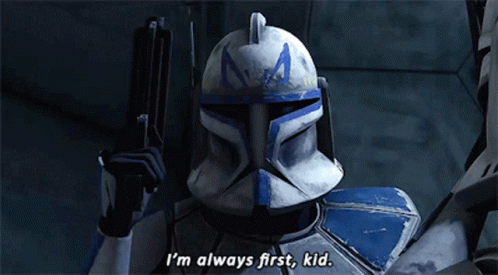
When the Bad Batch started, I was initially quite excited because it was advertised as a sequel to the Clone Wars. The first episode opens up with the title 'The Clone Wars' fading into the Bad Batch, but the show is anything but because the 'regs', as normal clones have been dubbed, don't matter now. Instead, the only characters with agency are a special group of clones who mostly don't look like the clones based on Jango Fett (Temuera Morrison) or even scientifically fit the basic definition of what a 'clone' is.
How is this not meant to be insulting for TCW and the Clone Fandom? I watch normal clones like Commander Wilco get shot in the face. I watch Mayday choke and die for Crosshair's development. I watch Rex play second fiddle to the Bad Batch on screen, the man and leader who used to always say "I'm always first, kid" and take the reins. I watch Cody appear for an episode only to not appear again this season and have no impact on the narrative other than Crosshair's development. Can 'regs' no longer change the world? Do the 'boring', 'regular' slave soldiers have no impact anymore?
Echo: "The fate of all the clones is now sealed because of us."
When it comes to normal clones impacting the narrative, the closest we get is Rex's resistance network, which features actual clones actually doing something. Yet apparently an episode about the Bad Batch discovering an island paradise world and battling a tsunami deserves more screen time than seeing how the 'regs' set that one up. Even this plot point is less about finally saving Howzer and normal clones like him, and more about Echo not being with the Bad Batch and further setting up the plot regarding Tech and Crosshair. The normal clones remain non-entities outside of the Bad Batch's development, they have no agency beyond this.
This is why we see stock reg clone characters bully the Bad Batch in the Season 1 opening, because despite them all being slaves under the thumb of fascism and the fact normal clones treated Ninety-Nine (the beloved hunchback clone from TCW Season 3) fine, it's the Bad Batch's plight that only matters now, their persecuted perspective on being special and better than the regs, regs that are now treated as old news, an afterthought. The world feels small, and inexcusably less richer than it was.

Essentially, we're no longer allowed to see what the reg clones motivations are, why there are reg clones that actually, canonically, dislike the Bad Batch as opposed to Ninety-Nine. People like to speculate, but on screen we are not shown or told in TBB. We're also not shown why all the named clones from Howzer, Mayday, Fireball, Gregor and Nemec to Cut, Cody and Rex never had issues with the differences other than they're the good regs I guess. Hell, even Cody and Mayday's remaining squad say nothing of Crosshair's mutations, not even one catty comment.
Conclusion
So, what does this mean? The Bad Batch steals the clones' agency and makes it their own. They wear the clone identity, but refuse to help normal 'reg slave' clones that look like actual clones in favour of focusing on themselves and their 'more important' personal problems. The Bad Batch are special not because of who they are or that they've worked hard, but because they look different from other clones, because they're just more capable and have special abilities. It's not who you are that counts, it's what you are.
And, now, I even see fans doing what TCW told us not to, disregarding normal clones, 'explaining' why the Bad Batch are fine to leave the reg clones to die because they called them "The Sad Batch" one time. Somehow the Bad Batch undoes all of TCW's work, stripping the clones of their agency and making them into just victims sleepwalking into extinction as we wait for the Bad Batch to consider trying to actively save them.
Echo: "The fate of all the clones is now sealed because of us."
And, then the rest of TBB go cave exploring and holidaying on Pabu. This series might as well be about natborns.
#the clone wars#captain rex#the clones#clone rights#star wars tcw#clone troopers#character writing#character agency#tbb echo#star wars#tbb season 2#tbb critical#anti tbb
218 notes
·
View notes
Text
youtube
I have some reservations here because show! Alicent is in fact given some agency, only that it withers into nothingness much later in the season to serve the Rhaenyra Better Ruler Best Friend narrative.
I do agree A LOT, however, with the statement that while later seasons of Game of Thrones suffers from what the characters DO, House of the Dragon has underperformed because of what the characters DON'T do (e.g the dreadful Green Council episode and Rhaenyra wavering in the finale).
21 notes
·
View notes
Text
Writing Problem: The Conflict Is Inconsequential, Flash-in-the-Pan
Problem: The Conflict Is Inconsequential, Flash-in-the-Pan
Solution: Many authors struggle to contrive meaningful conflict such that it either shapes or speaks critically to the trajectory of the characters it touches. Conflict is not a consequence or a corollary of scheme or impulse; conflict should develop as the story develops and grow as the character dynamics grow.
Explore character through conflict by reinforcing their goals and their perceptions (of reality), as well as the plausibility of maintaining either. Use conflict to reveal blind spots, biases, or fears. Conflict doesn't narrow the possibility of who characters are, or what the story might convey; conflict opens characters (or readers) to new methodologies, new stakes, and possibly new goals, as a result of enduring or overcoming the fracas in question. Conflict adds depth.
Writing Resources:
Conflict Thesaurus (One Stop for Writers)
Need Compelling Conflict? Choose A Variety of Kinds (Writer's Helping Writers)
How to Draw Readers in Through a Character's Choices (Writers Helping Writers)
Exactly How to Create and Control Tone (September C. Fawkes; ahbwrites)
Are Your Conflicts Significant? (September C. Fawkes)
Tension vs. Conflict (Hint: They Aren't the Same Thing) (September C. Fawkes)
How to Write a Dystopian Story: Our Gide (Jericho Writers)
Plot Conflict: Striking True Adversity in Stories (Now Novel)
How to Use Central Conflict and Drama to Drive Your Novel (Now Novel)
❯ ❯ Adapted from the writing masterpost series: 19 Things That Are Wrong With Your Novel (and How to Fix Them)
#writeblr#writing tips#writing advice#writing conflict#fiction writing#writing problems#novel writing#conflict#writeprob#conflict thesaurus#reinforcing goals#character agency#character choice#writing drama#how to create and control tone#writing tone#adversity in stories
13 notes
·
View notes
Text
Let's talk about character agency.
I've been in a few discussions recently in roleplaying circles that discuss how much agency to give players and their characters, and the advantages and limits of railroading.
Often, people criticise GMs who direct their players, who lead them in a specific direction, who push them towards certain destinations and outcomes. They proclaim the importance of player "agency", by which they mean the freedom of the player to do what they want. In a collaborative storytelling experience, constraining some of the participants is by definition a bad thing.
It sounds like a strawman, and it isn't, this is just me accumulating the arguments and thoughts of a large number of people I've had the pleasure of talking with.
I obviously disagree (or else this post wouldn't exist). I feel like people misunderstand the meaning of agency. Maybe it's just a me thing, but I feel like there is a solid difference between agency and freedom.
If a character or player has freedom, they can do what they like, how they like. If a character or player has agency, they are the agent of their own situation. What I mean is that to give a player agency isn't necessarily to allow the players to do what they want, that's something the GM can impose, but to allow them to do it how they want.
Escape rooms give an interesting framework of thought for this. You dump players in a room. They can do any action they like, in the limits of the room. But their objective is clear and fixed, they can't just choose to do something other than escape (unless they refuse to play the game, but that's irrelevant here). However it's up to them to find a way to act that can advance their objective. They don't have freedom, but they do have agency.
Another example I'd give is from video games, specifically Halo Reach. The ending of the story is a foregone conclusion. There's nothing you can do to change that, it's defined from the moment you click the "start campaign" button. In terms of "freedom", there is no better way to show a lack thereof than by showing proof of the player character's future death. But throughout the story, you as a player have the opportunity to be an actor in the central conflict of the story, in the limited way in which a linear FPS lets you.
TL;DR: freedom is overrated. Agency is the key. And agency is the position of being an actor in your story, even if you don't have a choice.
I dunno, maybe this is all pretty obvious to people. But it's something I wanted to talk about, and I haven't posted anything original for quite some time.
7 notes
·
View notes
Text
A question to consider when you're writing fiction:
Can the story move forward without the main character making decisions and taking actions? If so, why are they the main character?
89 notes
·
View notes
Text
The WIP project - agency

Hello writerly friends!
I must admit, things are not going so well with my goal of 40k in 50 days. So not well, actually, that I already adjusted the goal to 20k in 50 days. Because that's what you have to do when things get off track. It's no use to try to force a system to work if reality is working against you.
This is me taking control of my plot. I have agency in my life, I decide how I manage my life and how I write and how I set my goals.
Speaking of agency (behold the segue (it's not segway? I could have sworn...)), I came across a post by Tiffany Yates Martin on Jane Friedman's blog about character agency. https://janefriedman.com/who-makes-it-happen-giving-your-characters-agency/
Maybe it's just me, but one problem I often have is that my characters just sort of run along with the plot, getting thrown here and there. The story happens to them, instead of them happening to the story.
According to Martin's post, these are some common traps that make characters too passive:
The witness: The protagonist is present for the action of the story, but primarily as an observer or reporter, rather than a key driver of the plot.
The bystander: The plot happens adjacent to the main character; he’s “in the room where it happens,” but not intrinsic to making it happen.
The recipient: Another character in the story effects the action and drives the plot, handing the spoils—essential information, progress toward a goal, etc.—to the ostensible protagonist, who didn’t directly do anything to achieve them.
The victim: The character is woefully put-upon in her journey toward self-actualization, but we never see her taking the reins to act for her own salvation; she just weathers the storm.
Oh yeah, that sounds familiar. I have one story where the main character starts out very much as the bystander. It's part of her growth process to change that, but I should probably hurry that along before my readers get bored with her.
Look at your characters, are they active? Do they drive the plot? Does the plot develop with their decisions?
As with all advice, this is not an all-or-nothing situation. I think a character can also be passive for a while, depending on their situation, but if they never make decisions, the story might get boring to read.
How do your characters fare? Are they active or more passive?
---
@quilleth, @theoriginalladya, @kmlaney, @coffeewritesfiction, @mareebrittenford, @lilliebellfanfics, @keyboardandquill, @fontainebleau22, @kinetic-elaboration, @wildswrites, @rhikasa, @inkvulture, @heroofshield, @bad-at-names-and-faces, @sabels-small-sphere, @annaofthenorthernlights, @sarahawke
17 notes
·
View notes
Text
Since I hate concepts like fate and love at first sight and soulmates, this puts me in so much conflict with a significant portion of fic-reading world. Because there’s nothing that takes me out of a story quite like the assumption that Cas was/ is in love immediately after saving Dean. Or vice versa.
🤮
Those mf-ers tried really hard not to fall in love.
But they were allies first, then friends.
They had separate agency from one another and cared about the same mission on its own merits. (Cas has always been a spanner because he questioned orders.) That’s how they got to know one another at first, because they appealed to each other’s sense of justice.
Then they lost faith in one another and got so pissed at one another it was so fucking funny
Like Dean loses hope and Cas gets so mad and throws all these barbs and takes on five angels and he keeps right on fighting till Dean starts fighting too …
Then Cas loses hope and wants to imbibe copious amounts of alcohol but Dean keeps right on fighting so Cas makes a Molotov cocktail and starts fighting again too …
They give up all the fucking time and get so furious at each other for giving up or not providing the other support … it’s very real … and very fascinating embedded in the fucked up destiny-fate- upside-down-world shitstorm maze that they’re constantly facing
The actual story is just…so much better than glossing it over like it’s instant noodles.
#character agency#anti fate#anti soul mates#anti love at first sight#destiel#ppl get overly obsessed with Hester’s line#the touch of Dean does not corrupt#Naomi has more legit info to offer than a fucked up screeching Hester who is placing blame#Naomi knows that Cas simply cares about things#and has a tendency to make himself little families#because Naomi is actually better at psychology#love isn’t a moment#it’s a stranger thing#to think a single person corrupts another is to ignore agency#ppl make choices#it's the race we call life
10 notes
·
View notes
Link
Whenever I talk about character in storytelling — seriously, I’ll talk about this stuff with Target clerks, zookeepers, parking meters, carpenter bees — I frequently bring up the notion that, for me, good characters possess agency. And this, I often say, is one of the things that really matters in a so-called “strong female character” — not that she is a character who can bend rebar with her crushing breasts, but rather that she has agency within the story you’re telling.
Often when I talk about this in public, someone — maybe the zookeeper, maybe the parking meter — raises his hand and asks the question:
“Wait — what is agency, again?”
And it occurs to me I don’t know that I’ve ever defined my terms.
And that is a Naughty Wendig.
12 notes
·
View notes
Text
Writing Wednesday: Half-Life of a Soul Status Update
Back in March of this year, I hit such a horrible roadblock. I was still writing but I stopped because I knew something was wrong and I could NOT figure out what. If I kept writing, I’d only make more work for myself later. I somehow knew this roadblock would end up meaning some big rewrites.
Continue reading Untitled
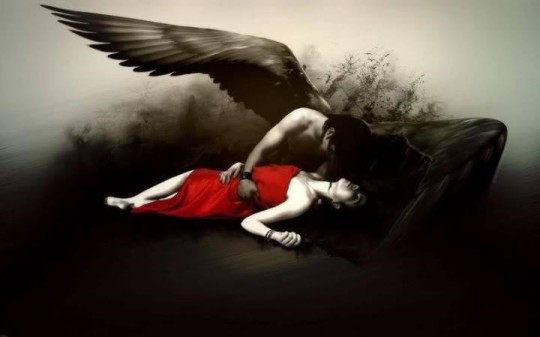
View On WordPress
#agency#Caleb#character agency#editing#Half-Life#Half-Life of a Soul#Lauren#no spoilers#rewrite#writers block#writers life#writerslife#writing
1 note
·
View note
Text
Do well by your female characters
Back in film school you wouldn't believe the amount of scripts I read from my (mostly male) classmates that featured the same character; a kind, helpful woman reflective of the male protagonist who showed up when he needed her to offer warm words and support, allowing him to overcome obstacles and go for what he needs.
I hope she doesn’t sound familiar to you.
One of them was a coworker, another a train station attendant, another the best friend who lived next door—it didn’t matter, they were all the same character, uninvolved in their own lives, created to help a man get to his goal. Let’s be wary of this trope, and stop robbing our female characters of their own agency. We can do this in a few ways:
1. They aren’t convenient
One confusing fault of the female characters I read in my peers’ scripts was that she was always around right where the protagonist needed her to be. It didn’t matter if he was having a crisis in the alleyway, or by the museum, or in his own house, she’d show up like she’d been summoned.
She needed a place to be—a life outside of him. A job, school, hobbies. Sometimes when he needs her—she shouldn’t be there.
2. They have an actual personality
While being warm, kind, supportive, and empathetic are all admirable traits people do have, I’ve never met a real person where that’s all they were. Like building any character, she needs flaws, interests, something to her that isn’t just for other people’s benefit. Consider what traits she has that aren’t just ways she serves others.
Allow her something just for her. Something selfish.
3. They have and work towards a goal
Related to her not being convenient—she’s got her own thing going on. Like any other character, she has goals and objectives, motivations, something to work towards. As much as she supports the protagonist, she also takes from him to fulfill her own goal.
Give her wins, disappointments, a little something going on. Something to gain from her interactions with him.
What else bothers you about common female character tropes? Or what did I miss?
#writing#creative writing#writers#writing community#screenwriting#writing inspiration#books#filmmaking#film#writing advice#female characters#writing female characters#mary sue trope#character agency
213 notes
·
View notes
Text
one of the best character types i think is insane man in a long fur coat
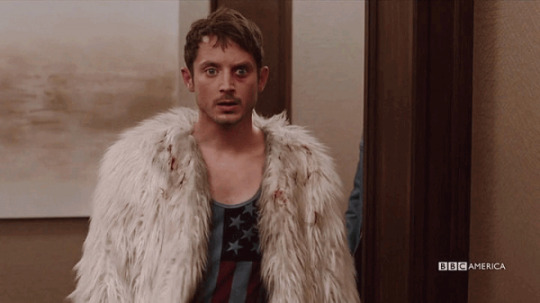
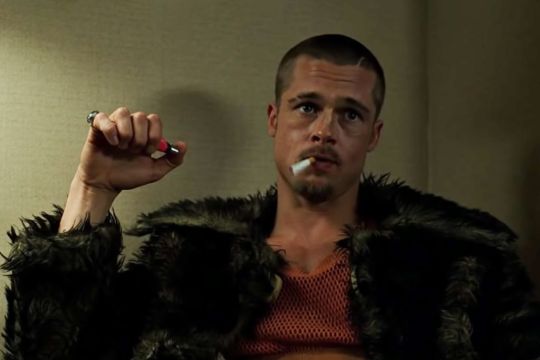

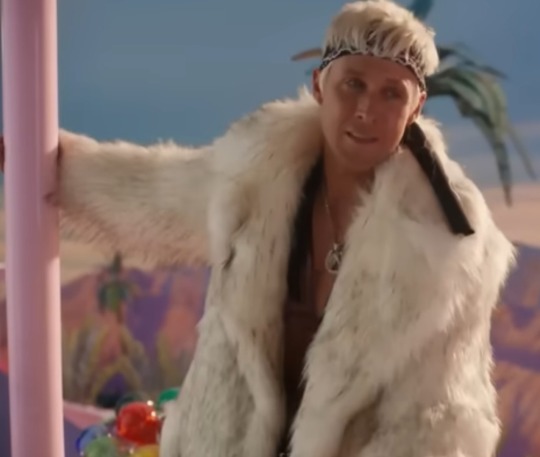
#character types#character design#character archtypes#dirk gently#dirk gently's holistic detective agency#dghda#todd brotzman#fight club#tyler durden#brad pitt#candyman#candyman 1992#candyman 2021#tony todd#barbie#barbie 2023#ken#ken barbie#ryan gosling#insane man#insane men
19K notes
·
View notes
Text
Et Tu, Machina? The Tyrannosaurus is NOT the Hero: Rewriting the Deus Ex Machina of Jurassic Park and other failed resolutions
A screenwriter buddy and I were chatting about bad endings of great movies. Thor: Ragnorak broke my heart. The Shape of Water delivered a watery cliche. La La Land nearly killed the muse, that fine deliverer of spindly rhyme and barely audible whispers. 500 Days of Summer ruined my sole objective of seeking out my soulmate — probably a good thing for this overly emotional romantic! And then there…

View On WordPress
#Alternative Endings#Beloved Narratives#Character Agency#Creative Risk#creative writing#creativity#Deus Ex Machina#Film Creatives#Film Industry#Film Lovers#film writing#Fresh Perspectives#inspiration#Jurassic Park#Narrative Integrity#Portfolio Pieces#Reimagine Classics#Rewriting Stories#screenwriting#scriptwriting#Spec Scripts#Storytellers Unite#storytelling#Storytelling Techniques#Writer Life#Writer Portfolio#Writing Community#Writing Journey#writing tips
0 notes
Text
Sometimes I think about how Adrien, throughout the series, constantly grapples with his fear of abandonment. Gabriel conditioned him to believe that any love he receives is purely transactional, and that to earn affection he has to prove his utility. Adrien is constantly trying to prove his worth to his father for scraps of affection, and Chat Noir infamously crumbles on-screen any time he feels as though he is replaceable to Ladybug. It's a constant insecurity of his, like everyone will just dump him like a sack of potatoes the moment they find out how useless he is.
Meanwhile, all Marinette wants to is ensure that Adrien is happy. Because she loves him. She doesn't give two shits about how """useful""" he is. She holds him and tells him that she will never abandon him (both as Ladynoir and as Adrienette), and her fantasies are about saving him, not about him being "useful" to her. Throughout their relationship, Adrien is forced to disappoint Marinette constantly for reasons outside of his control (amok commands), and yet Marinette is still there for him.
At Adrien's lowest point, when he is forcibly torn away from everyone who had ever showed him genuine care, locked away in an all-white room and at his most "useless", right after disappointing Marinette and unable to even join the final battle or contribute in any way, she still saves him. She still loves him. Because he doesn't have to prove anything to her. Because he is loved and cherished for who he is, not for what he does, and that love is not conditional. Adrien's "happy ending" at the end of the first arc wasn't about him finally proving how useful he can be, because he never actually cared about being useful — he just saw it as the only means to feel loved and needed. Instead, in the end, he found out that he was loved and needed no matter what.
#ml s5 spoilers#ml s5 finale spoilers#idk im musing dont mind me#(as always this post isnt an invitation to tell me why You dont like the show. if that's the case then you can make your own post)#i think the ''what does this say about adrien's agency'' reading of the show is fair and an interesting perspective#but personally i find the ''what does this say about adrien's inherent worth as a person / how does this play into his fear of abandonment'#to also be a super valid way to read the series that is just as relevant to his character arc and i don't see people talking about enough
2K notes
·
View notes
Link
Very good article! Puts a name to something that has bothered me a lot
1 note
·
View note
Text

✨️Veth Brenatto ✨️
#critical role#critical role fanart#critical role spoilers#critical role campaign 2#mighty nein reunited#mighty nein reunion#critical role mighty nein#the mighty nien#mighty nein#veth brenatto#veth the brave#nott the brave#nott the best detective agency#dnd rogue#dnd art#dnd character art#dnd character#dungeons and drawings#dungeons and dragons
2K notes
·
View notes